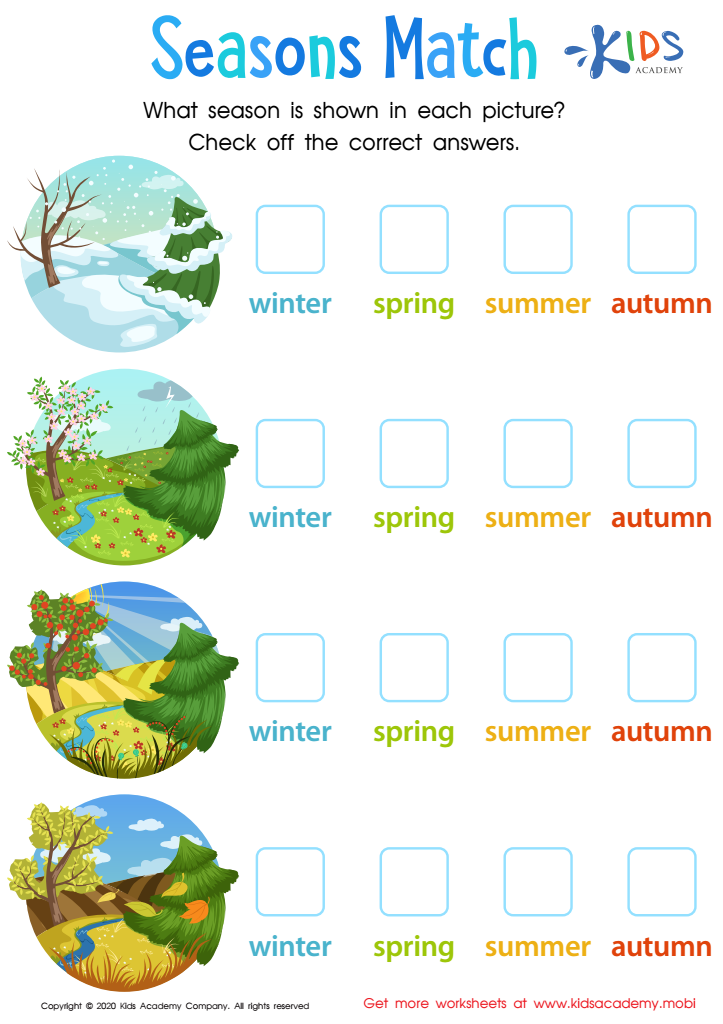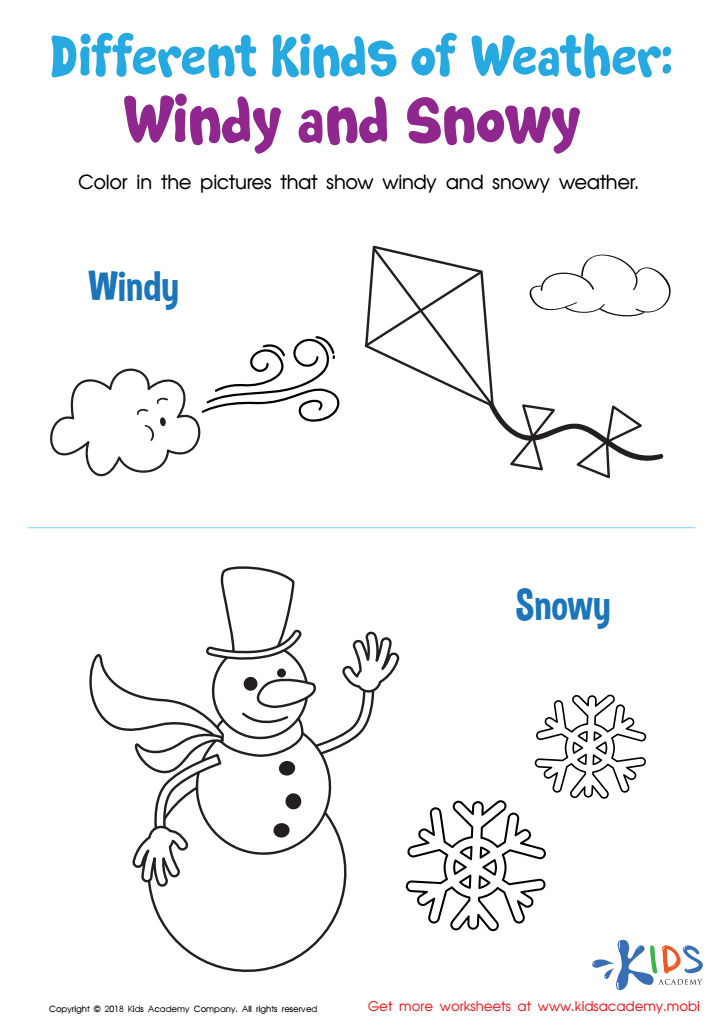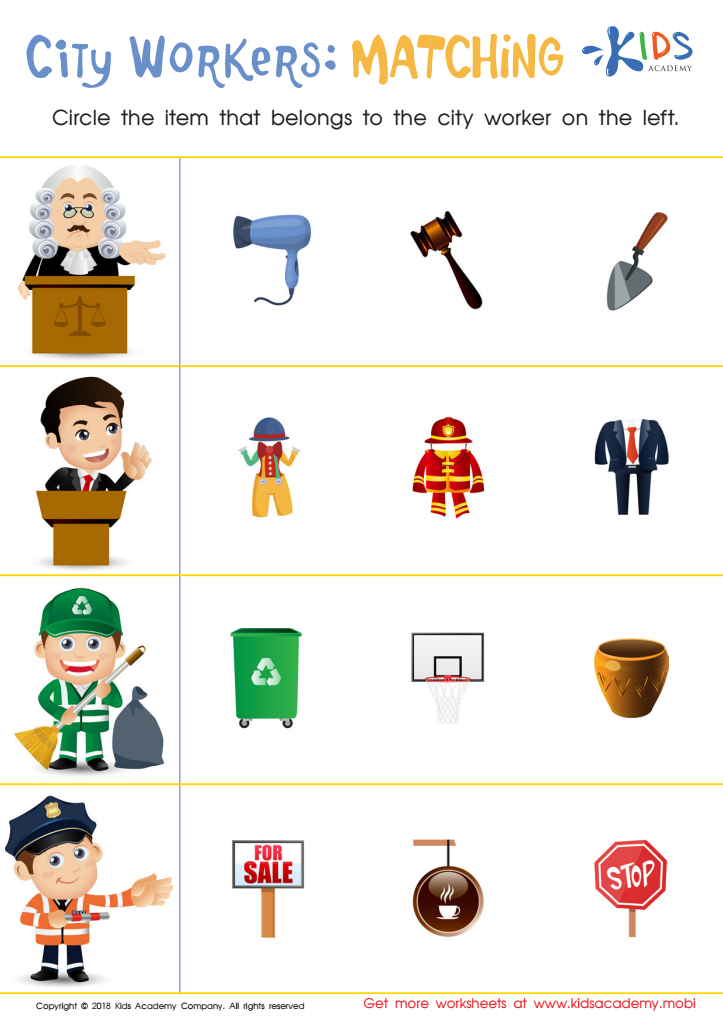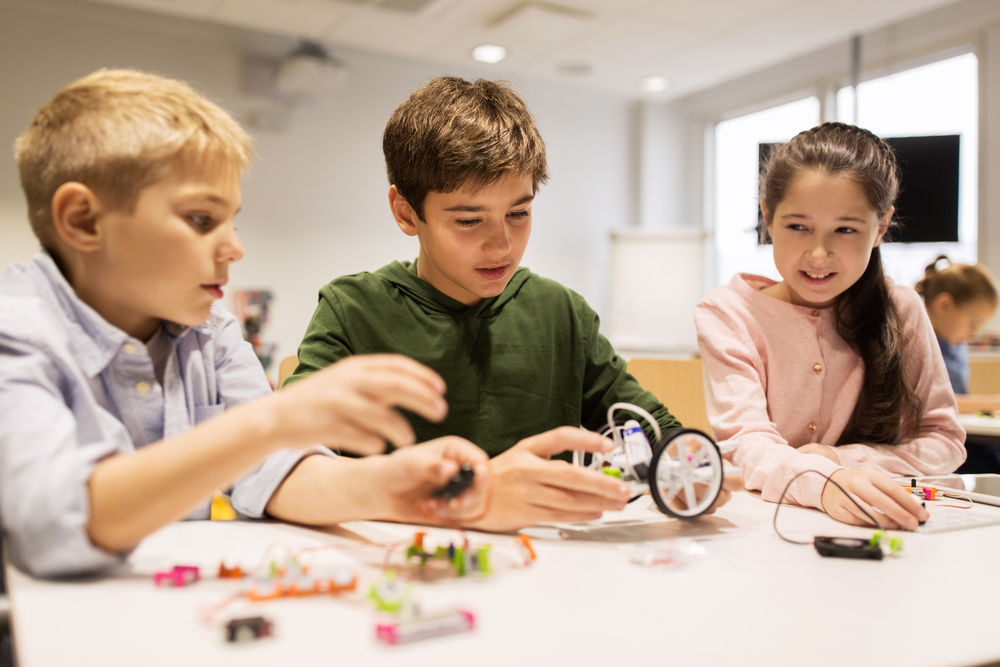Matching skills Normal Social Studies Worksheets for Ages 3-8
3 filtered results
-
From - To
Introducing our Matching Skills Normal Social Studies Worksheets for Ages 3-8, designed to make learning engaging and fun! These worksheets are tailored to develop your child's cognitive abilities and understanding of basic social studies concepts through matching activities. They help improve memory, problem-solving skills, and knowledge of communities and cultures. Perfect for early learners, these worksheets provide an excellent foundation in social studies while enhancing critical thinking and observational skills. Join Kids Academy today and watch your child explore the world with excitement and confidence through our carefully crafted educational resources!


Seasons Match Worksheet


Different Kinds of Weather: Windy and Snowy Worksheet


City Workers: Matching Worksheet
Parents and teachers should care about fostering matching skills within the normal curriculum for social studies for children ages 3-8 because these foundational abilities significantly impact cognitive and social development. Matching activities help young learners develop critical thinking and problem-solving skills by encouraging them to observe, identify patterns, and make connections between related concepts. These abilities are essential for understanding more complex subjects as they progress in their education.
In social studies specifically, matching helps children build comprehension and retention by associating images, symbols, people, and places with their names and functions. It supports memory development and aids in organizing information systematically, making it easier for children to recall facts and concepts accurately. This is crucial when learning about historical figures, cultural elements, or geographic locations.
Moreover, matching exercises foster language development and vocabulary expansion as kids describe similarities and differences between matched items. These activities often involve social interactions, such as collaborative learning and discussions, promoting communication skills and teamwork.
Additionally, matching in social studies helps kids appreciate diversity by exposing them to various cultures and ways of life, fostering empathy, and respect for others. Hence, integrating matching skills into early social studies instruction lays a solid groundwork for a child's academic journey and social-emotional growth.

 Assign to My Students
Assign to My Students





















